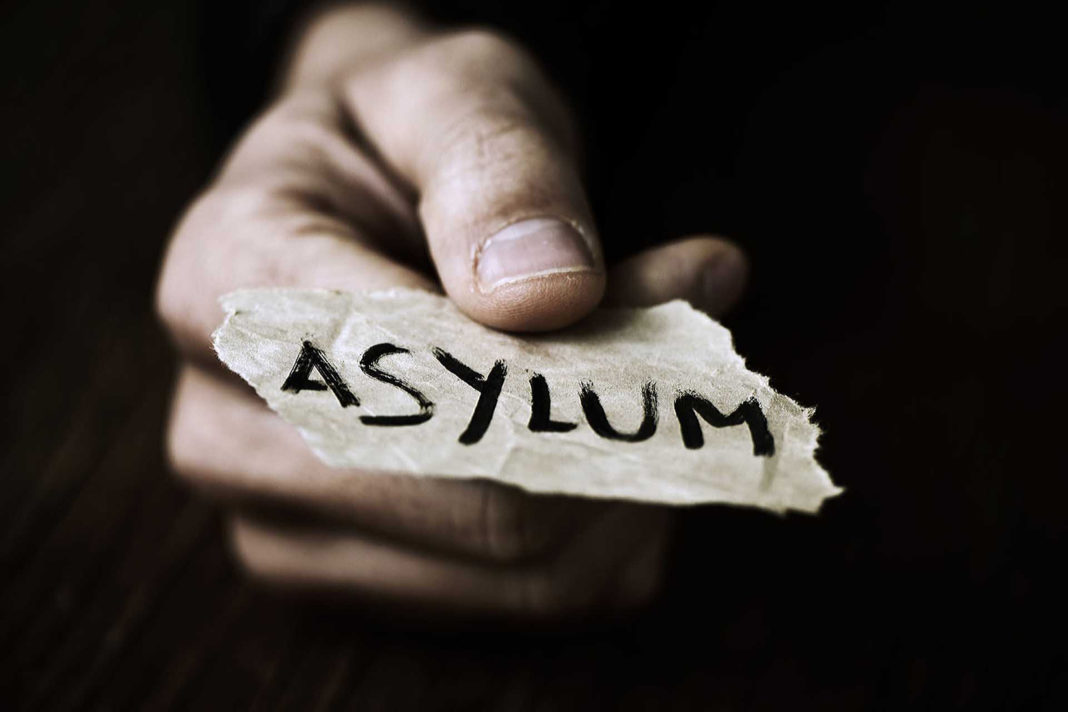In Cork, asylum seekers are terrified of Coronavirus as new residents arrive at the Glenvera Direct Provision Centre without having to quarantine. In Dublin, at taxpayers’ expense, officials from the Department of Justice spend their days monitoring the Twitter accounts of asylum seekers and those who feel Direct Provision is inhumane.
I hadn’t expected to find myself on the Department of Justice’s Enemies List last Sunday, especially as I had found their press office unfailingly helpful when I had rang them earlier for a comment on new arrivals at the Glenvera Direct Provision centre in Cork not being quarantined for Coronavirus.
I had been tipped off that Glenvera residents were upset at an influx of 15 to 20 new asylum seekers, new residents who had not been asked to quarantine on arrival, and I had spent the day chasing the story, but I was surprised when a friend texted me to say “You’ve made the DoJ daily reports”.
Thanks to Freedom of Information requests from journalists Sian Cowman and Ken Foxe, we now know that the Department of Justice and Equality’s so-called Transparency Unit has been for months monitoring asylum seekers, journalists, celebrities, academics, politicians and members of the public who criticise Direct Provision on social media.
The Department of Justice (DoJ) – which oversees the asylum process – has, since at least March, been compiling daily reports of social media posts criticising Direct Provision, offering a rudimentary analysis of the reach of the posts, and whether they were critical of the Government.
Hozier, Christy Moore and Marian Keyes are among those whose social media posts are included in the DoJ reports, as is Roderic O’Gorman, the Green Party TD and Minister for Children, and who will now have responsibility for the Direct Provision system. To my surprise, I’m in there too.
“Donal O’Keeffe wrote a news piece for The Avondhu newspaper titled ‘If you think Ireland isn’t a racist country, ask an Irish person of colour. Ask an asylum seeker in direct provision. Ask a Traveller.’ While the article references DP, it speaks of racisms as a whole in Ireland. Mr O’Keeffe shared this on his Twitter account where it received a notable amount of attention with 15 retweets and 49 likes.”
In point of fact, it wasn’t a news piece, it was an opinion piece, and it was actually titled ‘Ireland’s racism virus’, which was a paraphrasing of a quote from the then-Taoiseach, Leo Varadkar, but sure look, I’m always delighted to learn that someone actually reads my column. Let’s leave aside the fact that 15 retweets and 49 likes is pretty weak – my tweet of last week’s column got 41 retweets and 84 likes – and look instead at the ridiculous notion that civil servants are being paid to count likes on Twitter.
“Disgraceful treatment of asylum seekers”
As the brilliant Marian Keyes told Ellen Coyne in the Sunday Independent: “It would be better if the Government put their resources into dismantling Direct Provision and all its attendant horrors instead of simply monitoring opposition to it.”
Ms Coyne notes: “Surveillance of social media appeared to start at the height of Covid-19 in March, when campaign groups and asylum seekers were warning that the virus could easily spread within the accommodation centres. Direct Provision centres have recently emerged as one of the main sources of outbreaks of Covid.”
To date, there have been 21 Covid-19 clusters, involving 235 people, in Direct Provision centres around the country.
The main focus of the DoJ’s monitoring is on the Twitter account of Movement of Asylum Seekers in Ireland (MASI). MASI is a group of refugees and asylum seekers calling for an end to Direct Provision.
MASI said it was appalled at the thought of “dedicated civil servants monitoring our tweets”, adding that “Irish taxpayers and asylum seekers would be better served by the Department addressing its disgraceful treatment of asylum seekers.”
The Department of Justice said it started a new policy of monitoring social media during Covid-19 to improve its communications strategy, and to “correct any inaccuracies raised, investigate complaints and respond accordingly”.
Any time I’ve interviewed asylum seekers (almost always on condition of anonymity) in Direct Provision, I’ve been struck by how terrified they are that their words may be used against them, that they may be moved to worse accommodation, or even deported. If the DoJ is watching their every word, maybe it turns out their paranoia was well-founded.
We live in a time when racists the world over are emboldened by the tangerine, self-confessed serial sex-offender in the White House. Here in Ireland, our alt-right is a rag-bag gang of shouty conspiracy theorist flag fetishists, and while they have met with negligible results in the polls, it must be noted that politicians who dog-whistled to racists about asylum seekers have been rewarded with Dáil seats. Don’t forget that Peter Casey’s shambolic presidential campaign lurched from nowhere to nearly a quarter of the final vote, finishing second, when he went after Travellers.
We have seen lately an alarming rise in racially motivated assaults in Ireland, with two such attacks occurring only last weekend. You would think that instead of wasting resources on monitoring those of us who oppose the inhumane Direct Provision system, the Department of Justice and Equality might have more pressing matters to worry them, like maybe drafting hate crime legislation, or perhaps even keeping an eye on the activities of those who try to stir up hatred in Ireland, or – and here’s a mad idea – dismantling Direct Provision and treating asylum seekers like human beings.
“We are all very scared”
The Glenvera Direct Provision Centre is located on Wellington Road in Cork City centre. On Sunday, residents told me that between 15 and 20 asylum seekers who arrived there last week have not been quarantined for Covid-19.
Michael*, a 55-year-old African man, told me everyone in the centre is “terrified” of Coronavirus, and the arrival of new residents who have not been quarantined has led to a tense atmosphere.
“We are all very scared, and now we have these new people who have not been quarantined, and that is unfair on everyone, because it makes us look at them like they are the enemy when they have done nothing wrong.”
A spokesperson for the Department of Justice said that “while all new arrivals and international protection applicants wanting to be re-accommodated in one of our centres are subject to a 14-day quarantine, this is not required for transfers between centres, which are both Covid-free.
“This is in line with public health advice.”
Residents have also claimed that the number of occupants per room has increased, with up to four residents now sharing cramped accommodation.
David*, an African man in his twenties, said: “Sometimes there are four people in a room, and those rooms are really small, and not fit for more than one person.”
The Department of Justice disputed that claim, saying “the Department implemented a new policy, very early on in the pandemic, to ensure that no more than three non-family members share a room in any of our centres.
“This continues to be the case in all our centres including in Glenvera in Cork.”
Roos Deimol, an activist who has worked with refugees and asylum seekers for the past six years, said it was her understanding that some of the new residents had come from the controversial temporary direct provision centre in Miltown Malbay which was closed down last week.
“While I understand that people had to move out of their previous accommodation, Glenvera is completely unsuitable, especially in a time of pandemic, with at least three residents having to share each room,” Ms Deimol said.
“People are sharing bathrooms, showers and living space with people from different cultures, with no control over where room mates go, or over their hygiene measures.”
Mike Fitzgibbon, a lecturer with the Cork University Business School, and an activist who works with asylum seekers, was scathing of the Department’s response.
“We have seen what the current public health advice regarding direct provision centres has resulted in – Covid-19 clusters across the country – so the idea that moving the population of a centre closed over health and other concerns into another centre which is already full, won’t create more problems is just not credible.”
Dr Jacqui O’Riordan, a lecturer at the School of Applied Social Studies in University College, Cork said there could be no excuse for taking risks with the health of asylum seekers living in direct provision.
“While guidelines might allow for three non-family members to share a room, applying this in direct provision centres where residents have no choice about the accommodation they are allocated does nothing to address wellbeing and dignity.
“When will we as a nation, start treating vulnerable people with real care and respect?”
“If you were in our shoes you would not even know how to smile.”
Fiona Finn, CEO of Nasc, the Migrant and Refugee Rights Centre in Cork, told me that over lockdown, a number of residents were moved from Glenvera to temporary accommodation in the Travelodge on the Kinsale Road.
“The Department of Justice, at the time, stated that this move was essential to reduce occupancy in Glenvera and to enable social distancing measures to be implemented. This was a public health measure to protect the health and well-being of the residents. We are aware that a number of residents have now been moved from centres that are due to be closed to the Glenvera Hotel. Current residents of the centre are understandably concerned and worried for their heath as they are now sharing rooms with more people.
“They will simply be unable to follow the current public health advice under these conditions. This comes at a time when we are seeing a surge in the numbers of cases with clusters emerging in Direct Provision Centres in some counties.
“By forcing people to live in overcrowded settings, the Department is making them vulnerable to Covid-19. The Department must find safe alternative accommodation for people moving from closed centres and prioritise their health. As the WHO keep reminding us, nobody is safe until we are all safe. Residents in Direct Provision do not feel safe.”
Sam*, an Asian asylum seeker in his thirties living in the Glenvera centre, told me direct provision has a depressing effect on residents, leaving many of them feeling adrift and disconnected.
“We are worried about Coronavirus, but we are worried about everything, so when every day is like the next day, maybe we don’t even worry about dying.
“We fear the virus, but we can’t fear the new (residents) because we have been in their shoes and now they are in our shoes.
“If you were in our shoes you would not even know how to smile.”
With human beings locked in a cycle of misery lasting often for years, one might reasonably expect a certain attention to what is surely an issue of human rights.
Presumably the Department of Justice is indeed focused on the well-being of vulnerable people who have fled often life-threatening situations, but it clearly also has the time and resources to monitor the Twitter accounts of asylum seekers and those of us who believe we have a duty of care to those who come here seeking our help.
With civil servants spending their days counting likes on Twitter, you’d have to wonder at the Department of Justice’s priorities.
*Residents’ names have been changed to protect their anonymity.








